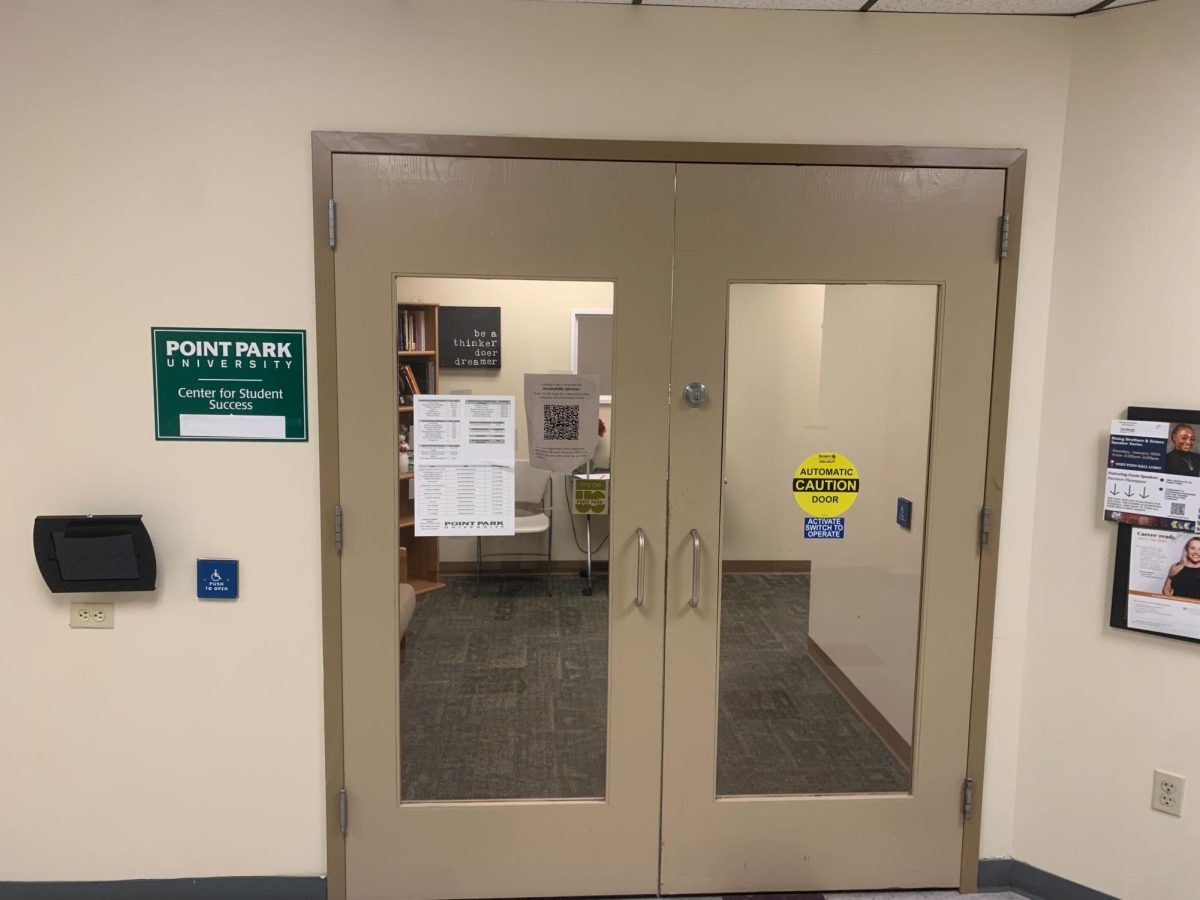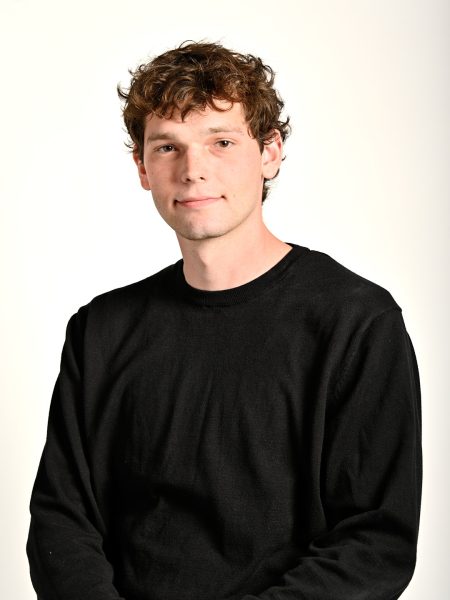In an email sent to staff and faculty on Dec. 14, Provost Michael Soto announced several changes within the Center for Student Success (CSS), resulting in the firing of two key positions in the office.
“The position of Assistant Vice President of Academic Affairs, currently held by Molly McClelland, will be eliminated, along with the position of Administrative Assistant in the Center for Student Success, currently held by Courtney Springer,” Soto said in the email. “I am truly grateful to Molly and Courtney for their service to Point Park students, and we wish them well in their future endeavors.”
McClelland did not respond to requests for comment.
Effective this month, the CSS has been renamed to the University Advising Center and relocated to the Student Affairs division. Current student success coordinators and assistant directors’ titles have been changed to academic or senior advisors, bringing “clarity and renewed focus on the critical work of academic advising,” according to Soto.
The current CSS houses the academic advisors, the tutoring and writing center, student intervention and accessibility services.
Also announced in this email, academic advising will now report to Angelo Gargaro, who now holds the title of Managing Director of University Advising and Student Conduct. Accessibility services will report to Keith Paylo, Vice President of Student Affairs and Dean of Students. Tutoring services will report to Josie Brown, Ph.D., Dean of the School of Arts and Sciences. Gargaro will also be overseeing School of Communication (SOC) students for academic advising in replace of McClelland.
“I recognize there has been some inconsistency with a permanent person in the advising role,” Gargaro said. “I am dedicated and focused on searching for an energetic and proficient advisor to oversee the SOC programs as quickly as possible and am excited to better serve students.”
Gargaro served as an academic advisor for the School of Business from 2018 to 2021 before taking over Student Conduct. He said that the office is also looking for another coordinator.
The SOC has been without a permanent advisor since the beginning of the fall semester, when the previous advisor Emily Quidetto switched roles to become the Coordinator of Planning and Assessment for the Institutional Research and Planning Office.
Junior Broadcast Reporting major Cade Montgomery said it has been “pretty frustrating” not having a consistent advisor but that he has “heard good things” about Gargaro.
“If he [Gargaro] does a good job running student conduct, then I’m sure he will be great as an advisor,” Montgomery said. “Hopefully he will stick around though.”
Montgomery said that he has had an “okay” experience with academic advisors but had some difficulties when figuring out what classes to take when he changed his major.
“Obviously there are situations that cannot be controlled, but I really think the university needs to focus on having consistent advisors,” Montgomery said.
PR & Marketing grad student Emma Federkeil said she “feels sympathy” for students facing advisor changes. All SOC graduate students like Federkeil are all advised by Jenna Lo Castro, so she didn’t face any of the advising changes.
“I don’t think it’s fair to the students to wing this on them…you have to give our students the tools that they need to succeed,” Federkeil said. “I feel sympathy for the students if they’ve been working with one advisor and now they have this complete stranger in front of them… if I came back from break and someone took Jenna away from me, I’d be upset.”
Leah Revo, a junior broadcast production and media management, only recently learned about the advisor change through word of mouth.
“It was really weird over break. I was worried because they randomly dropped this class, and I just signed up for it. Over break it was stressful trying to reach out to my advisors especially because no one checks their email over break,” Revo said.
Yet Revo said Garago responded quickly to an email about her dropped class on Monday.
“So far it seems like he’ll [Garagro] do his job; it’s 50/50,” Revo said. “I feel like [the university is] trying to get people, but it’s falling short a little bit. It could be better, but it’s not as bad as it could be.”
Paylo said that accessibility services will continue to operate as normal, with requests going through Student Access Coordinator Travis Shaw. Accessibility Services is also looking for a new director.
“With the new strategic plan, we are going to see a lot of restructuring, but this will allow us to better concentrate on our designated areas… it’s a rifle approach versus a shotgun approach,” Paylo said. “All of the offices are intertwined and communicate on a daily basis, and the feedback I have received has been positive and do not have concerns about it [any future faculty position consolidations].”
Michael Elko, director of tutoring services, said that operations for the tutoring and writing center will continue as normal and that the center is “prepared” for any more potential changes.
“I understand the quick changes and concerns for students, but I think we’re prepared to handle that; we’re all still in the same place on the fifth floor of West Penn as of right now,” Elko said. “I am looking forward to working with faculty in arts and sciences and work on improving the writing end of services.”
These changes are the start of several with the continued implementation of Pioneer Vision 2030, step two of President Chris Brussalis’ university strategic plan. The plan focuses on three drivers of program excellence, student experience and community and three strategic enablers of growth, advancement and capacity. The goals outlined in the plan are hoped to be achieved by 2030 and include various initiatives such as updating the university core curriculum and making it more transfer-friendly, creating mixed-generational housing to revitalize Downtown Pittsburgh and expanding on-campus activities.








